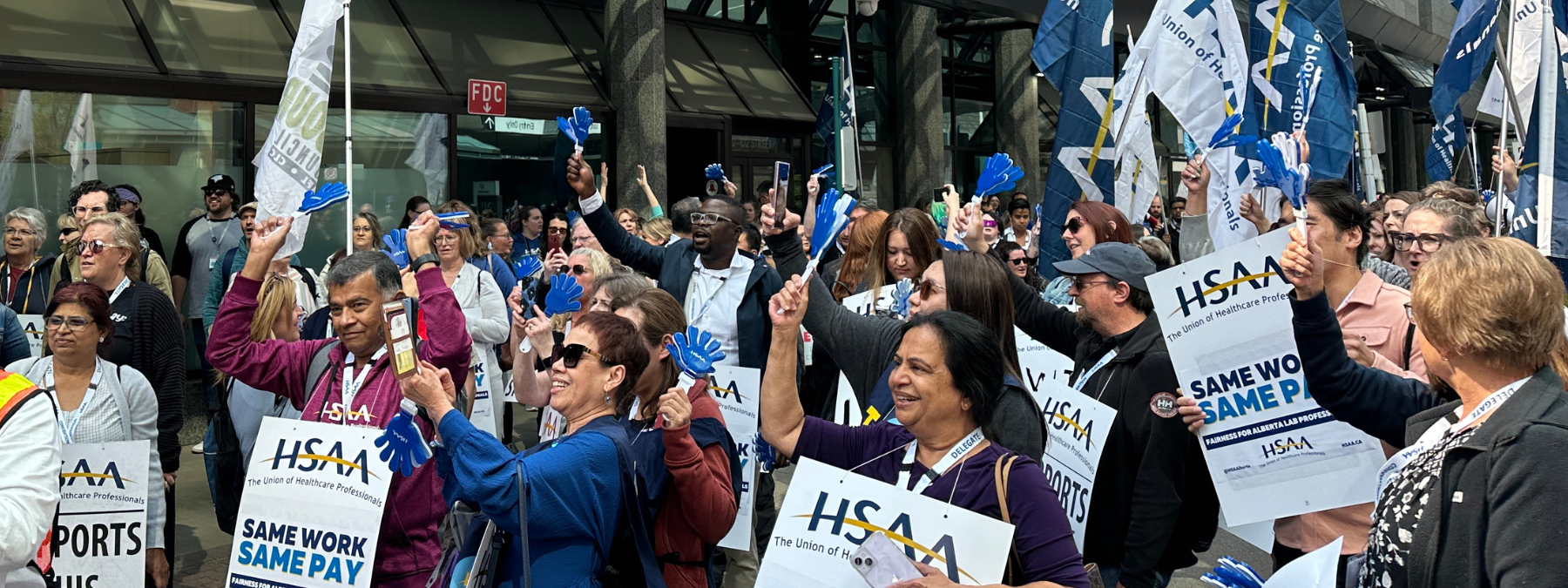The Bargaining Process
After the 2015 Supreme Court decision, bargaining impasses will now lead to strikes or lockouts as the method by which parties will assert their will, where they have previously been settled through interest arbitration.
To learn more about the bargaining process, download our infographic on the path to reaching a collective agreement.
Right to Strike Video
Frequently Asked Questions
What does essential services mean when it comes to a strike?
Essential services are services which the interruption of would endanger the life, personal safety or health of the public; or, that are necessary to the maintenance and administration of the rule of law and public security.
Who determines which employees are considered essential?
Employers and unions negotiate essential services agreements (ESAs), determining which services and workers are to be considered essential, rather than having the government impose something from above. If parties cannot agree on the terms of the ESA, the negotiations can be facilitated by an umpire. The Essential Services Commissioner will ultimately ensure that the negotiated agreement complies with the standard set out in the legislation. HSAA is currently in the process of negotiating essential services agreements with AHS and our other Employers.
What does this mean for Emergency Medical Services (EMS) workers?
HSAA is currently negotiating with AHS and our other Employers to determine essential staffing service levels. However, private rural ambulance services are being classified as essential under the new law because their bargaining units are much smaller.
Will the new legislation make strikes more likely?
Writing for the University of Alberta’s Parkland Institute’s blog, Dr. Bob Barnetson, a professor of labour relations at Athabasca University, says that, “while it will be easier for public-sector workers to strike (since it is no longer illegal), it is unlikely that we’ll see a huge increase in public-sector strikes and lockouts… strikes and lockouts entail significant financial and reputation risks for both sides. This compels unions and employers to grapple with whether the costs of a strike or lockout is really worth the potential gains. “Typically, this dynamic heightens the willingness to compromise by both sides. That is to say, the threat of conflict often reduces the likelihood of it actually happening.”
What is a replacement worker?
A replacement worker is a person, paid or not, who is hired by the employer or supplied to the employer by another person for the purpose of performing work done by bargaining-unit members who are on strike or locked out. You may have heard them referred to as “scabs.”
If I’m scheduled to work under the agreement and I have to cross the picket line, will people consider me a “scab”?
No. It is important that all members understand that members will be scheduled to work and that they must comply with that, they do not have an option. As one person put it; their heart is on the line with their co-workers but their head and hands have to be at work.
I work for another employer (not AHS) and we don’t require an ESA, why are we different and what do we do it we can’t get a collective agreement?
Some employers have always had the right to strike and that has not changed with the new ESA legislation, so if collective bargaining reaches and impasse, job action can be pursues without an ESA.
Are there any groups with HSAA that are not allowed to strike at all event with an ESA? And why are they different?
Yes. For example, the Emergency Medical Services (EMS) at sites that are contracted to AHS do not have the right to strike. If they are unable to get a collective agreement, they cannot go on strike and an impasse in bargaining would be resolved through binding Interest Arbitration.
Are we going to be all alone at our sites in the event of a strike or lockout, or are there going to be people to help set it up, do signs up, etc.?
HSAA staff will work with your Local Unit Executive to support the needs of the membership during any job action, whether it be a strike or lockout. And, of course, we would anticipate support from other unions.

